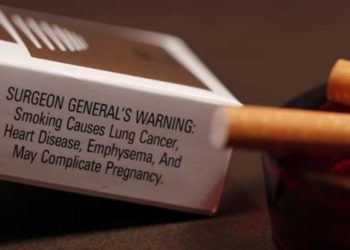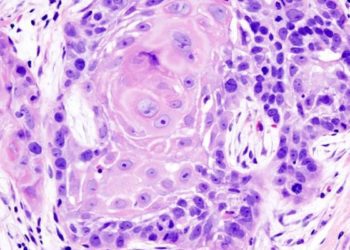Abrupt smoking cessation associated with improved abstinence from smoking
1. In this randomized trial, abrupt smoking cessation was more likely to lead to lasting smoking abstinence than gradual smoking cessation.
2. Participants who preferred gradual cessation were significantly less likely to be abstinent after 4 weeks than participants who preferred abrupt cessation.
Evidence Rating Level: 1 (Excellent)
Study Rundown: Quitting smoking is notoriously challenging, and a number of drug-based and behavioral strategies have been developed to help people quit. Although smokers are typically advised to quit “cold turkey”, there is conflicting evidence on whether abruptly quitting versus gradually tapering use is more effective. This study evaluated abrupt versus gradual quitting strategies by randomly assigning cigarette smokers to quit abruptly or to gradually taper cigarette use over two weeks before quitting. Participants were evaluated at 4 weeks and again at 6 months after quitting to determine if they continued to abstain from smoking. Overall, at both 4 weeks and at 6 months after quitting, participants who quit abruptly were more likely to be abstinent from smoking than participants who gradually reduced the amount that they smoked. Notably, participants who preferred to quit gradually were significantly less likely to remain abstinent than participants who preferred to quit abruptly, regardless of whether the participant was actually randomized to quit gradually or not. Moreover, fewer participants in the gradual tapering group actually attempted to quit compared to participants in the abrupt quitting group. Unfortunately, this study used only a relatively short follow-up period (6 months) to assess abstinence, and so long-term efficacy of either strategy could not be fully evaluated. Nonetheless, this study adds evidence that quitting cigarette smoking abruptly leads to more successful abstinence from cigarettes than gradually tapering smoking, even among people who prefer to quit gradually.
Click to read the study published today in the Annals of Internal Medicine
Relevant Reading: Reduction versus abrupt cessation in smokers who want to quit
In-Depth [randomized, controlled trial]: This trial enrolled 697 smokers in British primary care practices, and randomized them to either abruptly quit smoking or gradually taper smoking to 25% of baseline cigarette consumption over 2 weeks, and then quit. Abstinence from cigarette use was measured using self-reporting, salivary cotinine and exhaled carbon monoxide. Four weeks after their quit date, participants who were randomized to gradually taper were significantly less likely to continue abstaining from smoking than were participants randomized to quit abruptly (39.2% versus 49.0%, respectively; relative risk: 0.80, 95%CI 0.66 – 0.93), a trend that continued at 6 months of follow-up (15.5% versus 22.0%, respectively; RR 0.71, 95%CI 0.46 – 0.91). At four weeks, participants who preferred to quit gradually were significantly less likely to have abstained from cigarettes than participants who preferred to quit abruptly (38.3% versus 52.2%, p = 0.007), regardless of which arm they were randomized to. Notably, significantly fewer participants in the gradual tapering group actually attempted to quit compared to participants in the abrupt quitting group (61.4% versus 71.0%, p = 0.007).
Image: PD
©2016 2 Minute Medicine, Inc. All rights reserved. No works may be reproduced without expressed written consent from 2 Minute Medicine, Inc. Inquire about licensing here. No article should be construed as medical advice and is not intended as such by the authors or by 2 Minute Medicine, Inc.






